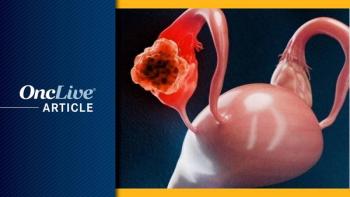
Patient Preference for Treatment in Ovarian Cancer
Bradley Monk, MD, FACOG, FACS: Shannon, you and others are integrated in measuring the patient experience. There was a nice SGO [Society of Gynecologic Oncology] paper…and it talked about what adverse effects patients care about. Let’s ask the patient. Let’s also ask the patient how they determine what the best decision is. Go ahead, tell us about that.
Shannon N. Westin, MD, MPH, FACOG: Yes, this was an interesting study. They dug in deep with about 34 patients. They did in-person interviews using a visual acuity scale to assess how patients make decisions around whether they want maintenance in ovarian cancer. Specifically, what were their perceptions of adverse events, and what were the adverse events they were willing to tolerate and for what benefit?
What they found was that a lot of the perception of adverse events was dependent on what they’d already had. This is a population in which the bulk of them were recurrent. They had a recurrence, so they had been treated in the past with drugs; some of them had had PARP inhibitors and some of them had had bevacizumab. That seemed to color their responses and their results. What they found is that they were most bothered by GI [gastrointestinal]-related adverse effects. Bowel perforation was far and away their perception of the worst adverse event, severe nausea and vomiting. That was then followed somewhat by fatigue, and then counts were definitely something that was less important to this group of patients.
They used the presence of these adverse events to make decisions, but the No. 1 thing that helped them make a decision was what their physician was recommending, and are they saying it’s going to help them? Are they saying it’s going to help them live longer?
They would weigh those adverse events with the idea, “My doctor says that I’m going to have a benefit from this.” They were even able to nail down, they were willing to accept about a 20% to 40% risk of an adverse event if there was going to be a positive, if they were going to get a benefit. These types of studies can be helpful when we have a number of different options in front of us to understand what’s important to the patient.
Bradley Monk, MD, FACOG, FACS: As you know, I’m a big advocate of HPV [human papillomavirus] immunization, and we’ve looked at that. The No. 1 factor in a young individual, 9 to 12 years of age, getting Gardasil 9 is the strength of the recommendation to the parent. It’s the same thing here. If you say, “There’s this medication niraparib and PRIMA, I’m not sure. There’s olaparib, bevacizumab, PAOLA-1, I’m not sure,” then they’re not getting it.
Transcript edited for clarity.




































